What Are Antioxidants and Why Are They Good for You?
You’ve likely heard the term 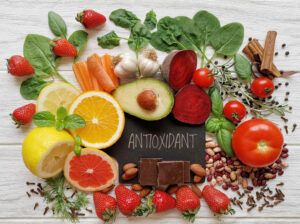 antioxidant a number of times here and there and wondered what it actually meant.
antioxidant a number of times here and there and wondered what it actually meant.
Here we will be diving into this topic and answering the question: What are antioxidants and why are they good for you?
Antioxidants Defined
Also known as “free radical scavengers,” antioxidants are molecules/substances that help to stabilize free radicals, thereby protecting your cells from the effects/potential damage they can cause.
Antioxidants essentially neutralize the adverse impacts of free radicals.
Free radicals are “unstable” atoms that can cause various types of cell damage (including DNA damage), which are produced as a result of a process called oxidation.
Oxidation is the result of many normal physiological processes that occur:
- As part of phase 1 of the liver detoxification process when your body is cleansing itself from various pollutants and toxins such as smoke, pesticides, etc
- As you breathe and your body metabolizes oxygen to be utilized for energy by your cells
- When your cells use glucose to produce energy
- When your immune system is fighting off a pathogen such as bacteria, fungus, or parasites
- As part of your stress response
- When metabolizing glucose/sugar
- And more
Free radicals are also produced at high levels by exposure to x-rays, heavy metals, pesticides, and environmental toxins such as smoke, industrial chemicals, air pollution, mold, and more.
A balance between antioxidants and free radicals is required so as to maintain health and the proper physiological function of the body.
If there is an imbalance between the amount of free radicals present in relation to the amount of antioxidants present, with fewer antioxidants to free radicals, an increase in “oxidative stress” can occur.
Oxidative stress refers to stress and damage that can be done to our cells as a result of being exposed to too many free radicals.
An increase in oxidative stress can contribute to the development of a variety of different medical conditions including neurodegenerative conditions (Alzheimer’s, Parkinson’s, etc), diabetes, cardiovascular conditions, cataracts, skin conditions, and many others.
Additional symptoms of increased oxidative stress can include chronic fatigue, migraines, anxiety, and many more.
Furthermore, an increase in oxidative stress makes overall healing more challenging for the body. Making sure you are including plenty of antioxidants in your diet and healing protocol is a wonderful way of helping your body to heal more efficiently.
Sources of Antioxidants
There are certain kinds of antioxidants that are made by the body in addition to a variety of antioxidants that can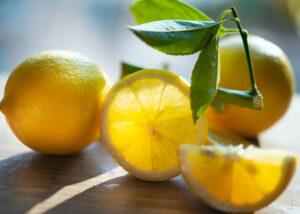 be acquired via our diet. There are also ways to support your body’s ability to make antioxidants.
be acquired via our diet. There are also ways to support your body’s ability to make antioxidants.
One example of an antioxidant that is made by your body is glutathione. Glutathione is often referred to as the “master antioxidant.” Glutathione is also essential for detoxification, immune function, nutrient metabolism, and much much more. It is a tripeptide that is made of the amino acids (the building blocks of protein) glycine, cysteine, and glutamic acid.
Some of the ways to help increase and/or maintain your body’s levels of glutathione include:
- Eating foods rich in vitamin C such as citrus fruits, rutabagas, bell peppers, and brussels sprouts. Vitamin C helps to maintain glutathione levels.
- Eating foods rich in selenium such as brazil nuts and good quality proteins. Selenium is a cofactor to glutathione, meaning it is part of the process that allows glutathione to fulfill its many necessary physiological roles.
- Eating foods rich in vitamin E such as almonds, beet greens, and collard greens. Vitamin E helps to enhance glutathione levels.
- Eating foods that contain higher levels of glutathione themselves, including avocados, okra, and asparagus.
- Supporting your liver, where a great deal of your body’s glutathione is made. Curcumin, dandelion root, and phosphatidylcholine are excellent natural liver supports.
- Ensuring that you obtain adequate sleep, as sleep helps to support the body in producing glutathione.
There are various forms of antioxidants found in whole foods which include phytochemicals, enzymes, vitamins, and minerals. These include:
- Ellagic acid
- Polyphenols
- Beta-carotene
- Lycopene

- Lutein
- Indoles
- Flavonoids
- Vitamin C
- Vitamin E
- Vitamin A
- Selenium
- Zinc
- Manganese
- Superoxide Dismutase
- And more
It is important to include a variety of different kinds of antioxidants because they all work together and each contribute their beneficial actions in different ways.
Foods High in Antioxidants
Basically all forms of whole foods contain some degree of antioxidants, however there are some that contain higher levels than others.
The following foods are high in antioxidants and contain many of the phytochemicals, enzymes, vitamins, and minerals mentioned above which give them their antioxidant properties.
- Blueberries
- Blackberries, raspberries,
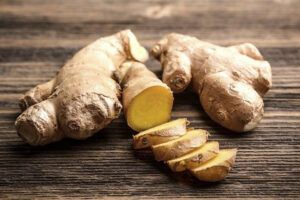 cherries, and strawberries
cherries, and strawberries - Pomegranate
- Lentils
- Egg yolks
- Asparagus
- Onions
- Leafy greens: spinach, collard greens, kale
- Avocados
- Carrots
- Pumpkin
- Cruciferous vegetables: broccoli,
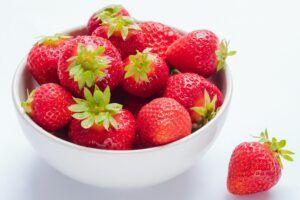 brussels sprouts, cabbage
brussels sprouts, cabbage - Tomatoes
- Citrus fruits
- Strawberries
- Green & black tea
- Artichokes
- Beetroot
- Dark chocolate
- Pecans – it is best to roast pecans which reduces their anti nutrient content and makes them more easily digestible
- Spices – parsley, curry powder, cinnamon, mustard seed, dill, chili powder, cumin, sage, paprika, coriander, turmeric, cardamom, oregano, basil, thyme, tarragon, mint
- Ginger
- Garlic
It is important to note that many people who are chronically ill and/or have an expressive gene variant such as CBS or SUOX can be sensitive to sulfur, which includes foods high in indoles as well as cruciferous vegetables. While sulfur is of course needed and part of a balanced diet, it is important to remain aware of possible sensitivities here, which I will be covering further in future articles.
This is an example of how adhering to one’s own bioindividual needs is of the utmost importance and how everyone’s needs will differ.
Antioxidant Supplements
Including antioxidant supplements in your daily supplement protocol can be a helpful way of ensuring that you are meeting your body’s antioxidant needs.
Click here to check out my top 3 go-to’s, that I’ve found to be the most effective and have taken for a number of years.
Additional Ways to Reduce Oxidative Stress
In addition to supporting glutathione production, making sure you include enough antioxidant rich foods in your diet, and taking good quality antioxidant supplements, the following are also ways to help reduce oxidative stress and its coinciding adverse impacts on your health:
- Reduce your exposure to air pollutants such as smoke, chemicals from conventional cleaners, etc/optimize indoor air quality
- Reduce stress levels
- Keep sugar consumption to a minimum
- Avoid hydrogenated vegetable oils
- Avoid excessive amounts of exercise
In Closing…
As we’ve explored here, antioxidants are very important for your overall health, as they help to neutralize the adverse impacts of free radical atoms which have been produced as a result of oxidation.
Ensuring that you include a wide variety of antioxidant rich foods in your balanced whole food eating plan, supporting your body’s glutathione levels, using good quality antioxidant supplements, and taking the steps to further reduce oxidative stress are all the main ways you can give your body the antioxidant protection it needs.
This is a huge part of maintaining optimal health and a key area to focus on when adopting a healthy and healing way of life.
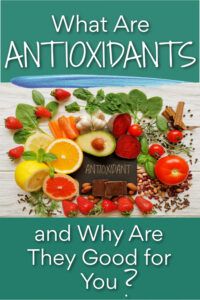
REFERENCES
Like so many other folks, I have heard about antioxidants, but really haven’t thought much about them. Your article has made what they are and what they do for the body much more clear. I appreciate the detail you have offered in terms of foods that are beneficial. Fortunately, in your last long list, I enjoy almost all of the fruits and vegetables listed. I was wondering if a person eats some of all of the basic food groups and the recommended amount of fruits and vegetables daily, will that insure that these levels are what they should be. Thanks for the information.
Hi Anastazja! Thank you for your comment! You are most welcome :). That’s great to hear that you enjoy a variety of foods that are high in antioxidants! This is an excellent base to cover to support your overall health. Whole food sources are always an excellent source of your antioxidants. Good quality antioxidant supplements can be helpful, although each person’s needs will differ depending on their unique health status. All the best to you! 🙂
Like many people, I have heard about antioxidants and free radicals, but didn’t really know how they fit together. After reading this post I now have a far better understanding of what antioxidants are, and how they work to counteract the harmful effects of free radicals.
I also didn’t know about glutathione and the importance of it in our bodies. Great to have a list of foods that are high in antioxidants and can help with glutathione production. Thank you for a very educational post.
Hello! Thank you for your comment! You are most welcome, I’m glad this article could be helpful :). All the best to you! 🙂
Antioxidants are needed to some extent in our lives, but I cannot eat too much as breaks me out and I cut all the food out. Now I am eating some and taking multi vitamins because could not find an actual article about the foods available and now I can use your list to plan my meals out so can go grocery shopping. I have booked and marked your website for easy access. Thanks
Hi Jannette! Thank you for your comment :). You are most welcome! I’m so glad this article could be of help to you. A lot of foods that are high in antioxidants are also high in sulfur, such as cruciferous vegetables, kale, eggs, garlic, and onions. While these are of course very healthy and nutritious foods, some people can have sensitivities to higher sulfur foods due to specific expressive gene variants such as CBS and SUOX, hydrogen sulfide Small Intestinal Bacterial Overgrowth (SIBO), and other causes. This may be something to explore with your doctor or nutritionist. There are ways to support your sulfur metabolism pathways so that you can tolerate foods that are higher in sulfur easier. Thank you and all the best to you! 🙂
Thanks for the great information Megan,
I’ve been taking various antioxidant supplements for years and I rarely have even a cold anymore. I used to get allergies and colds frequently so I think the additon of antioxidants has helped with that. Of course the best way to get them would be in our diets, but as we all know, that is not always possible.
I haven’t tried Glutathione or SOD. I work around a lot of smokers would these help with all the toxins that are contained in cigarette smoke? I don’t think I’m overly sensitve to sulfur but I am wondering about Glutathione if it may be tough on the stomach?
Hi Rex! Thank you for your comment! You are most welcome :). That’s awesome to hear you’ve experienced such excellent health benefits from antioxidant supplementation! It really is so incredible how integral antioxidants can be for our health.
Yes, these antioxidant sources can be helpful with heightened exposure to environmental toxins such as smoke. This form of glutathione, the acetylated form, is a gentle form. I tolerate it well and I have notable sensitivities to many things. The SOD supplement is derived from melon extract, which is also gentle. I tolerate that one well also.
Thank you and I wish you all the best! 🙂
This knowledge, could help thousands of people who currently rely on chemical-based drugs alone.
The problem is that we do not know our body, much less how it works.
Antioxidants are a fundamental part of the body’s natural balance and I have learned that factors such as stress dramatically disrupt the natural balance that already exists in the body.
In theory food and supplements should be sufficient.
But if people do not understand the influence of psychological and mental factors, not much will be achieved.
Do you suggest a diet that can combine the power of natural antioxidants that come in foods as well as supplements?
If I am a healthy person, should I consume supplements or is it enough with the antioxidants present in food?
Thanks for this article!
Hi Frank! You are most welcome! Thank you for your comment :).
Yes, learning about the human body and our physiology is very empowering when it comes to making informed health decisions.
Mental and emotional factors, especially trauma and chronic stress, most definitely have adverse influences on our health in a myriad of significant ways. It is indeed key to reach a balance and consider all factors that go into the human experience to achieve Whole Person wellness, including physical, emotional, and mental factors.
I am a big proponent of bioindividual considerations across the board, meaning that every person has a different set of requirements to meet their unique health needs. It depends on a lot of varying factors (such as genetics/currently expressive gene variants, lifestyle, stress levels, living environment, work environment, current health status, health history, etc etc) at different points in our lives and differing physiological considerations person to person. So for one person, the antioxidants found in food alone would be sufficient at some points, and then the need for extra support via supplements would be appropriate at other times. It all really depends.
An example of an increased need for support would be when someone is experiencing increased exposure to elements that can increase oxidative stress such as an increase in exposure to environmental toxins such as mold, smoke, chemicals, etc. Supplements can often be recommended to help moderate this heavier load in neutralizing free radical presence.
Bioindividuality is always the first thing to consider though and each case will be different.
Thank you so much and I wish you all the best in your journey! 🙂